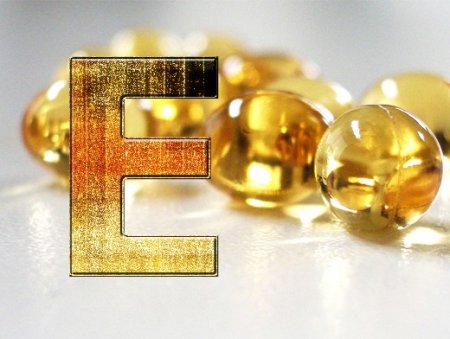Products that prevent liver cancer
During this work, scientists from the Shanghai Cancer Institute and the School of Medicine at the Shanghai Transport University (China) analyzed data on 132,837 Chinese people who participated in the research Shanghai Women's Health Study (1997-2000 gg.) And the Shanghai Men's Health Study (2002-2006 gg ).. Each test was conducted interviews, which allowed to collect data on its feeding habits. Then compare the risk of developing liver cancer among those who consume a lot of vitamin E, and of those, it almost was not in whose diet.
The participants included 267 liver cancer patients (118 women and 149 men) who have been diagnosed with this disease during the study.
The results showed that the intake of vitamin E as a food or a food additive was associated with a reduced risk of developing liver cancer. This association was present in both healthy subjects and in patients suffering from this disease or had liver cancer in the family history.
Useful forms of vitamin E contained in soybean, corn and canola oils.
Tocopherol (vitamin E) is contained only in plants. Animals do not synthesize it. In small quantities, it can be found in leafy vegetables, cereals (but untreated) bran in vegetable oils.
It has the greatest biological activity of alpha-tocopherol, contained in the fresh vegetables. The frozen or canned vegetables, as studies have shown, it has a lot less. For example, 100 grams of fresh green peas contains 0.55% vitamin E, frozen - 0.2%, which is almost half the size, and preserved - only 0.02%.
British scientists who have studied vitamin E content in the leaves of different plants and vegetables, found that the leaves are not great sources of vitamin E. Not very rich in them and familiar to us vegetables: cucumbers, carrots, onions, potatoes and radishes. Only in spinach and broccoli contain significant amounts of tocopherol, but we did not eat them so often.
No white bread or pasta, or especially pastries or cakes and similar foods do not contain vitamin E in whole unrefined grains tocopherol much, but in refined flour it is almost there. Obviously, he was in the bran.
too, it is not so simple with vegetable oil. Although they contain vitamin E, but also increase the need for its body. Vegetable oils contain unsaturated fatty acids, many of which are required for normal human growth and good health. But in the process of oxidation exempt so-called free radicals, which with unprecedented power their way through the cell membrane, causing great damage to the body. Here is where the need vitamin E. It provides biochemical protection against excessive oxidation and prevents the formation of free radicals.
Unfortunately, modern man menu even if a balanced diet does not provide adequate amounts of this vitamin. That's why nutritionists and doctors increasingly recommend to supplement our diet foods rich in vitamin E (wheat germ or bran). More often than not, and this is not enough. Then you have to take it in capsules.
The participants included 267 liver cancer patients (118 women and 149 men) who have been diagnosed with this disease during the study.
The results showed that the intake of vitamin E as a food or a food additive was associated with a reduced risk of developing liver cancer. This association was present in both healthy subjects and in patients suffering from this disease or had liver cancer in the family history.
Useful forms of vitamin E contained in soybean, corn and canola oils.
Tocopherol (vitamin E) is contained only in plants. Animals do not synthesize it. In small quantities, it can be found in leafy vegetables, cereals (but untreated) bran in vegetable oils.
It has the greatest biological activity of alpha-tocopherol, contained in the fresh vegetables. The frozen or canned vegetables, as studies have shown, it has a lot less. For example, 100 grams of fresh green peas contains 0.55% vitamin E, frozen - 0.2%, which is almost half the size, and preserved - only 0.02%.
British scientists who have studied vitamin E content in the leaves of different plants and vegetables, found that the leaves are not great sources of vitamin E. Not very rich in them and familiar to us vegetables: cucumbers, carrots, onions, potatoes and radishes. Only in spinach and broccoli contain significant amounts of tocopherol, but we did not eat them so often.
No white bread or pasta, or especially pastries or cakes and similar foods do not contain vitamin E in whole unrefined grains tocopherol much, but in refined flour it is almost there. Obviously, he was in the bran.
too, it is not so simple with vegetable oil. Although they contain vitamin E, but also increase the need for its body. Vegetable oils contain unsaturated fatty acids, many of which are required for normal human growth and good health. But in the process of oxidation exempt so-called free radicals, which with unprecedented power their way through the cell membrane, causing great damage to the body. Here is where the need vitamin E. It provides biochemical protection against excessive oxidation and prevents the formation of free radicals.
Unfortunately, modern man menu even if a balanced diet does not provide adequate amounts of this vitamin. That's why nutritionists and doctors increasingly recommend to supplement our diet foods rich in vitamin E (wheat germ or bran). More often than not, and this is not enough. Then you have to take it in capsules.
